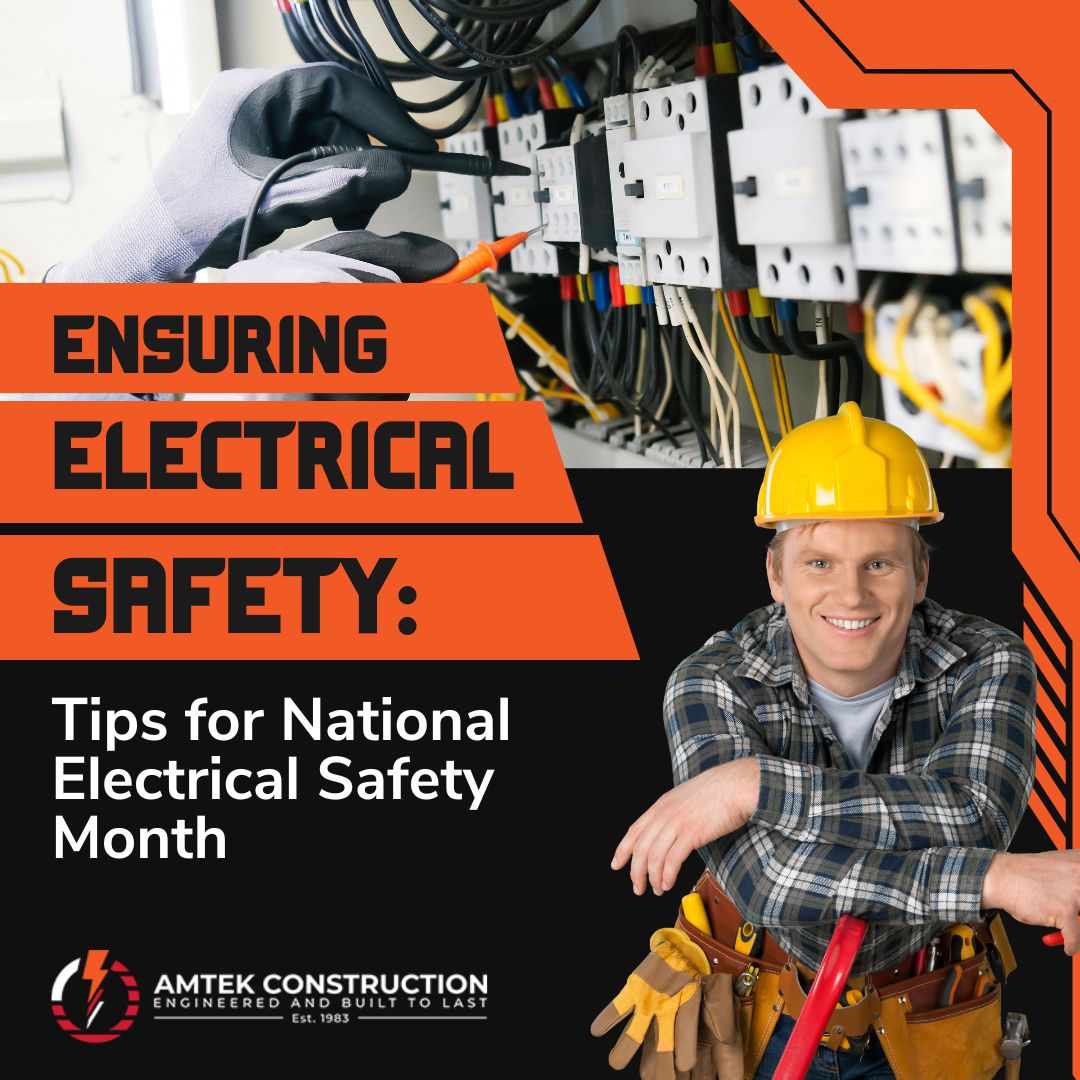National Electrical Safety Month in March is an excellent time to highlight the importance of electrical safety in your home. From simple precautions to professional inspections, there are several ways to ensure that your home’s electrical systems are safe and secure. Read on to learn more about our tips:
Regular Inspections:
Regular inspections by a professional electrical contractor in Orange County are crucial for maintaining the safety of your home’s electrical system. These inspections can help identify potential issues such as overloaded circuits, outdated wiring, or faulty appliances before they become serious problems. By catching these issues early, you can prevent electrical hazards and ensure that your home is up to code. Regular inspections also provide peace of mind, knowing that your electrical system is safe for you and your family.
Outlet and Cord Safety:
Outlet and cord safety are critical to prevent electrical fires. Overloading outlets with too many devices or using damaged cords can pose serious risks. To maintain safety, avoid using extension cords for long-term use and ensure all cords are in good condition without any frays or exposed wires. Additionally, using surge protectors can safeguard your devices from power surges, reducing the risk of electrical hazards. Taking these precautions can help protect your home and belongings from potential dangers.
Childproofing:
Childproofing your home is crucial, especially when it comes to electrical outlets. Children are naturally curious and may try to insert objects into outlets, which can lead to serious injuries. Installing tamper-resistant outlets can prevent children from accessing the outlets and protect them from electrical shock. These outlets have a built-in safety feature that only allows the prongs of a plug to be inserted when equal pressure is applied to both sides simultaneously. By childproofing your outlets, you can create a safer environment for your children to explore without the risk of electrical injuries.
Outdoor Safety:
Outdoor outlets should always be protected with weatherproof covers to prevent water damage, which can lead to electrical hazards. Additionally, it’s important to ensure that any outdoor electrical appliances or equipment you use are rated for outdoor use and are properly grounded. This helps prevent electrical shocks and ensures the safety of your outdoor electrical setup. Regularly check outdoor outlets and equipment for signs of damage or wear, and replace or repair them as needed to maintain a safe outdoor environment.
Smoke Alarms and Carbon Monoxide Detectors:
Smoke alarms and carbon monoxide detectors are essential for keeping your family safe from fires and carbon monoxide poisoning. Test them regularly to ensure they are functioning properly, and replace the batteries at least once a year. Consider installing interconnected smoke alarms, so when one alarm detects smoke or carbon monoxide, all alarms in the house will sound, alerting everyone in the home to the potential danger. Additionally, make sure to follow the manufacturer’s instructions for installation and maintenance to ensure these life-saving devices are always in working order.
Appliance Safety:
Regularly inspecting appliances for frayed cords, loose plugs, and other signs of wear can prevent electrical hazards. Replace or repair any damaged appliances to avoid potential fires or electrical shocks. Additionally, avoid using appliances near water sources to reduce the risk of electrical shock. If you need to use appliances in wet areas, such as kitchens and bathrooms, ensure they are plugged into a ground fault circuit interrupter (GFCI) outlet, which can quickly shut off power if it detects a fault.
Electrical Fire Safety:
In case of an electrical fire, it’s important to have a fire extinguisher in your home and know how to use it. Never use water to extinguish an electrical fire, as it can conduct electricity and make the situation worse. If you are unsure about using a fire extinguisher, evacuate the premises immediately and call emergency services. Regularly check your smoke alarms to ensure they are working correctly and replace the batteries at least once a year.
Emergency Preparedness:
Having an emergency plan in place for power outages or other electrical emergencies is essential. Make sure to include contact information for emergency electricians and know how to safely shut off the power to your home if needed. Keep a list of important phone numbers, including your utility company and a local electrician, in case of an emergency. It’s also a good idea to have a basic emergency kit with flashlights, batteries, and a first aid kit in case of an outage.
Conclusion
By following these tips and prioritizing electrical safety in your home, you can ensure that your family and property are protected from electrical hazards. Taking simple precautions and being aware of potential dangers can go a long way in preventing electrical accidents and keeping your home safe, especially during National Electrical Safety Month in March. Remember, for expert electrical safety inspections and repairs, contact AMTEK Construction, your trusted electrical contractors in Orange County.

